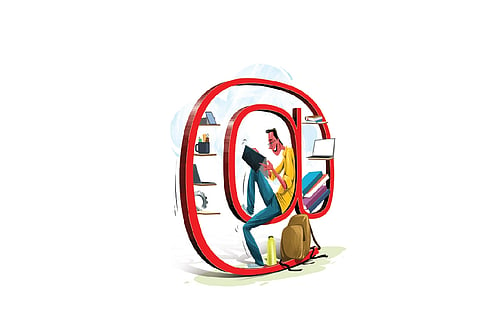

THIRUVANANTHAPURAM: Kerala is all set to become the country’s first digitally literate state.
In an effort to digitally empower citizens, the local self-government department (LSGD) launched a comprehensive project -- Digi Kerala -- in 2023 to identify people between the ages of 14 and 65 who do not have basic digital knowledge. The survey covered 8,332,343 families in the state and identified 21,88,398 people.
LSGD Minister MB Rajesh said that around 99.99% of the individuals passed the evaluation following training.
He said that President Droupadi Murmu is likely to make the declaration while on a two-day trip to Kerala to visit Sabarimala this month. “I met her in person and she is yet to finalise the date for the declaration. We are hoping that the declaration will happen when she comes to Kerala for the Sabarimala visit,” the minister told TNIE .
In 2022, Pullampara, in Thiruvananthapuram, was declared the first first fully digital literate panchayat in the country. LSGD designed the Digi Kerala initiative after taking inspiration from the efforts of the panchayat.
Rajesh said that digital literacy is essential for every citizen in today’s tech-driven world and Kerala has been a model state when it comes to literacy. “All public delivery services have been digitised and it’s essential for the common man to have digital knowledge to avail all those services. Hence we took this as a mission,” the minister said.
The digitally illiterate citizens were identified with the help of mobile applications using the service of thousands of volunteers from Kudumbashree, NSS, NCC, Library Council, and State Literacy Mission. Digital literacy was imparted through modules designed by KILA (Kerala Institute of Local Administration). “We trained volunteers to impart the lessons,” Rajesh added.
Tech-tonic Shift
Digi Kerala: The LSGD initiative was launched in 2023 to identify and train digitally illiterate people in the state
The project
Surveyed over 1.5 cr people from more than 83.32 lakh families
Identified and trained 21,88,385 people
Evaluation was carried out through mobile applications on people falling within 14-65 age group
99.99% Of those tested -- 21,84,985 people -- cleared the evaluation